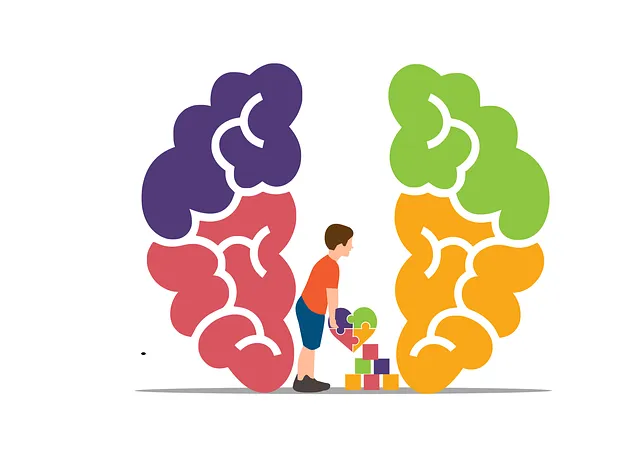Centennial Kaiser Permanente mental health locations prioritize risk management for patient safety and care quality. They train staff to identify potential hazards like self-harm and burnout, using tools like emotional intelligence and stress management workshops. Strategies include empathy building, culturally competent care, policy analysis, and evidence-based practices like mindfulness and CBT. Regular training on mood management and crisis protocols enhance a supportive therapeutic environment, benefiting both patients and practitioners. Kaiser Permanente's Centennial locations offer tailored, accessible mental health services to diverse communities, fostering resilience and community well-being.
Mental health professionals at Centennial Kaiser Permanente locations face unique challenges, demanding robust risk management planning. This article delves into the intricacies of risk in mental health practice, offering a strategic framework for professionals. We explore identifying potential hazards and vulnerable populations specific to Centennial sites, emphasizing the development of comprehensive risk management plans. By implementing evidence-based strategies, these locations can mitigate risks effectively. Continuous evaluation ensures adaptability to evolving mental health risk factors, fostering safer environments at Centennial Kaiser Permanente mental health locations.
- Understanding Risk in Mental Health Practice at Kaiser Permanente Locations
- Identifying Potential Hazards and Vulnerable Populations at Centennial Sites
- Developing a Comprehensive Risk Management Plan for Mental Health Professionals
- Implementing Evidence-Based Strategies to Mitigate Risks in Clinical Settings
- Continuous Evaluation and Improvement: Adapting to Evolving Mental Health Risk Factors
Understanding Risk in Mental Health Practice at Kaiser Permanente Locations

At Centennial Kaiser Permanente mental health locations, understanding risk is paramount to delivering safe and effective care. Given the sensitive nature of mental health practices, professionals must be adept at identifying potential hazards—from patient self-harm to staff burnout—that could disrupt the therapeutic environment. Risk management planning isn’t merely a checklist; it’s an ongoing process that requires continuous assessment and adaptation to evolving challenges.
The Stress Management Workshops Organization, for instance, plays a crucial role in equipping mental health professionals with tools to mitigate risks. Through workshops focused on emotional intelligence, staff gain insights into their own emotional responses and learn strategies to support patients’ well-being. This holistic approach not only enhances patient outcomes but also cultivates a resilient work environment, where professionals can effectively navigate the complex landscape of mental health care at Kaiser Permanente locations.
Identifying Potential Hazards and Vulnerable Populations at Centennial Sites

At Centennial Kaiser Permanente mental health locations, identifying potential hazards and vulnerable populations is a critical step in risk management planning. Mental health professionals must assess the unique challenges inherent in these settings, which often serve diverse communities with varying needs. For instance, high-pressure work environments, large patient caseloads, and complex case management can pose risks to both staff and patients’ well-being.
Vulnerable populations within these sites may include individuals experiencing severe mental illness, trauma survivors, or those from marginalized backgrounds. Effective risk management requires implementing Empathy Building Strategies to foster supportive relationships and ensure culturally competent care. Additionally, integrating Mental Health Policy Analysis and Advocacy can help address systemic issues, promote evidence-based practices, and enhance Mood Management strategies, ultimately creating a safer and more therapeutic environment for all involved.
Developing a Comprehensive Risk Management Plan for Mental Health Professionals

Mental health professionals at Centennial Kaiser Permanente locations face a unique set of challenges that demand a robust risk management plan. Such a plan isn’t just a checklist; it’s a strategic framework designed to protect both clients and practitioners, fostering an environment conducive to emotional healing processes. This involves a holistic approach that addresses potential risks, from client safety to burnout prevention, ensuring the continuity and quality of care provided at these locations.
A comprehensive risk management strategy for Centennial Kaiser Permanente mental health professionals should include mechanisms for identifying and mitigating risks, clear protocols for crisis intervention, regular staff training on mood management techniques, and robust communication channels. By prioritizing these aspects, mental health professionals can enhance their confidence boosting capabilities, improve client outcomes, and create a supportive atmosphere that encourages both personal growth and resilience.
Implementing Evidence-Based Strategies to Mitigate Risks in Clinical Settings

At Centennial Kaiser Permanente mental health locations, implementing evidence-based strategies is paramount to mitigate risks and foster a safe clinical environment. These strategies focus on integrating holistic approaches, such as mindfulness techniques and cognitive behavioral therapy (CBT), which have proven effective in managing and preventing mental health complications. By prioritizing these evidence-backed methods, professionals can enhance their ability to support clients’ mental wellness and reduce potential risks associated with treatment.
Additionally, fostering a culture of open communication and regular staff training on stress management plays a crucial role. Educating practitioners about the latest research in anxiety relief and mental health allows them to employ modern tools while providing personalized care. This comprehensive approach ensures that both patients and healthcare workers feel supported, ultimately contributing to a more positive and therapeutic clinical setting at Kaiser Permanente’s mental health locations.
Continuous Evaluation and Improvement: Adapting to Evolving Mental Health Risk Factors

Mental health professionals at Kaiser Permanente, particularly in Centennial sites, must proactively address risks to ensure patient safety and well-being. By understanding the unique challenges of their practice and identifying vulnerable populations, they can develop comprehensive risk management plans tailored to their specific needs. Implementing evidence-based strategies and continuously evaluating and improving practices are essential for mitigating risks effectively. Adopting these measures will not only enhance clinical outcomes but also foster a supportive environment for both patients and providers at Centennial Kaiser Permanente mental health locations.

